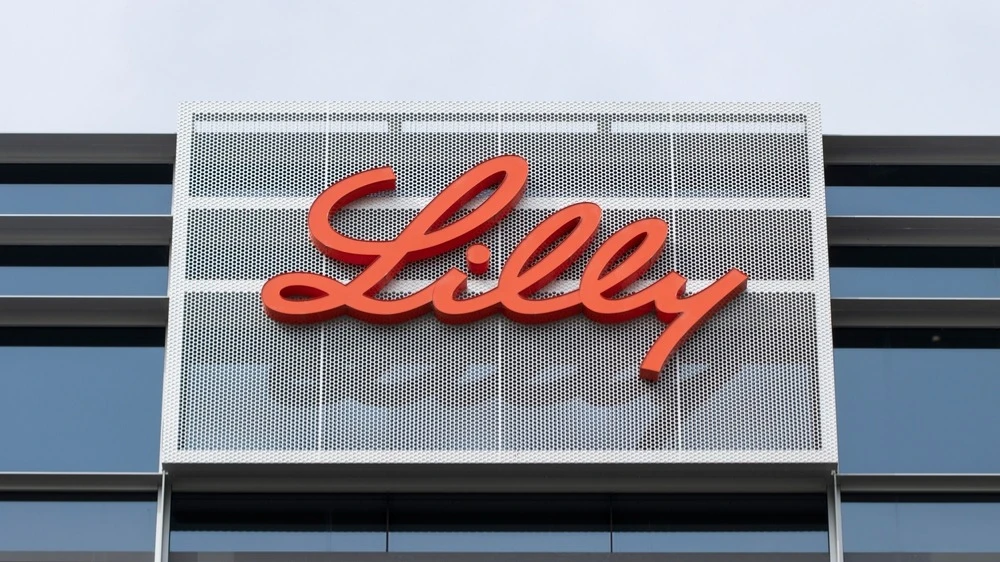Eli Lilly has disappointed with the outcome of a weight loss pill trial. Shares are down 15%
In contrast, the securities of Eli Lilly's main competitor, Danish Novo Nordisk, rose in price by almost 7%

US pharma giant Eli Lilly reported disappointing results from clinical trials of orforglipron (orforglipron), a treatment for obesity, which, unlike injections like Ozempic, is planned to be available in tablet form. Against this background, the company's shares collapsed by 15%. Even Eli Lilly's strong quarterly results and increased profit and revenue forecast for 2025 could not cheer up the market;
In contrast, Novo Nordisk's rival Novo Nordisk's shares rose sharply. Investors felt that the competitive threat from Lilly had weakened, and this strengthened Novo's position in the fight for the growing market for weight loss drugs, which could reach $150 billion by 2030;
Details
Eli Lilly reported that orforglypron in a late-stage clinical trial helped patients lose weight by 12.4% over 72 weeks. Analysts had expected that figure to be at least 14.9% over 68 weeks, which would surpass the effectiveness of Eli Lilly's main competitor, the injectable drug Wegovy from Denmark's Novo Nordisk (which also makes Ozempic), reports Reuters. The study involved more than 3,000 adults with obesity and comorbidities (without diabetes). At the maximum dose (36 mg), side effects mainly affected the GI tract: 33.7% of patients experienced nausea and 24% experienced vomiting. More than 10% of participants dropped out early due to side effects, but no serious liver problems were reported. Lilly plans to present full data next month at a major European diabetes forum. The company plans to apply for approval of the drug by the end of the year.
Eli Lilly CEO David Ricks told CNBC that the company is not disappointed with these results, even though "it's one or two points below Wall Street's expectations."
How stocks have reacted
In trading on August 7, shares of Eli Lillycollapsed by 15% to $633.2. This is their lowest price since January 2024. Now, since the beginning of the year, the market value of the company has gone down by more than 17%.
Novo Nordisk, which is also working on bringing its obesity pill to market, by contrast rose 6.7% at the end of trading in Copenhagen. They added even more, 14%, during the trading session, posting their biggest intraday gain since April, noted Bloomberg. Still, Novo's market value is down more than 50% since the beginning of the year.
What does that mean
Disappointing data on Eli Lilly's promising obesity pill bolstered investors' hopes for Novo's ability to compete with the U.S. giant in a fast-growing market, отмечает Bloomberg. Expectations for the Eli Lilly study were high - the drug was expected to outperform Novo's Wegovy, Barclays analyst Emily Field told Reuters. "And it turned out to be worse than Wegovy - it's a shock," she added. Novo and Lilly shareholder Marcus Munns called the results a "best-case scenario for Novo." "The competitive threat from Lilly was much weaker than expected," emphasized Manns, who was quoted by Reuters.
Eli Lilly and Novo Nordisk are the main rivals in the fight for a share of the rapidly growing market for weight loss drugs, which, according to analysts' forecasts, may reach $150 billion by the early 2030s. So far, all popular remedies for obesity are available only in the form of injections. The launch of tablet forms can radically change the market, notes CNBC: they are easier to produce and use, and therefore - will open access to treatment for millions of consumers. Now injectable drugs for weight loss are used by about 8 million people, but, according to the head of cardio-metabolic direction of Lilly Ken Custer, potentially their benefit could be up to 170 million.
Lilly was previously thought to be ahead of the competition, with Novo facing a series of setbacks, including a CEO change and two cuts to its 2025 revenue and earnings forecasts. While Novo has already applied in the U.S. for approval of a tablet version of Wegovy, it is more difficult to manufacture and use is likely to be subject to restrictions - such as meal and water timing, Bloomberg adds.
What else is important for an investor
Even goodresults for the second quarter of 2025 couldn't cap Eli Lilly investors' disappointment with trial results. On Thursday, the company reported better-than-expected earnings thanks to strong demand for its flagship diabetes and obesity drugs and raised its outlook for 2025, CNBC reported. For example, adjusted earnings per share came in at $6.31 versus analysts' expectations of $5.57, and revenue rose 38% year-over-year to $15.56 billion, while Wall Street had forecast $14.71 billion. Revenue from diabetes drug Mounjaro for the second quarter totaled nearly $5.2 billion - up 68% from a year earlier - and from weight loss product Zepbound totaled $3.38 billion, up 172% from the same period last year. Mounjaro and Zepbound were expected to bring in $4.49 billion and $3.06 billion in revenue, respectively, CNBC adds, citing StreetAccount data.
The company raised its full-year revenue forecast to $60-62 billion, up from the previously expected $58-61 billion. Its 2025 adjusted earnings forecast was raised to $21.75-23 per share from the previous range of $20.78-22.28. The company clarified that the forecast takes into account Donald Trump's duties in effect as of Aug. 7, but does not include new, planned levies on imports of pharma products into the U.S.
"I'm confident in the value of the company. Investors will decide for themselves what to think," Lilly CEO David Ricks told CNBC. - But Lilly has gained momentum: results have beaten expectations, the outlook has been revised upward, and we have a strong second half of the year ahead of us. We are optimistic about the future - both for the company and for patients."
This article was AI-translated and verified by a human editor
